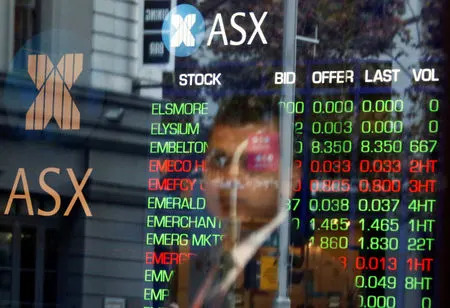(Bloomberg) -- Federal Reserve Vice Chair for Supervision Michael Barr plans to step down from the role, bypassing a potential battle with President-elect Donald Trump over his position and raising questions about the future of a landmark bank-capital proposal.
Barr is preparing to depart from the position on Feb. 28 unless a successor is confirmed earlier, the US central bank said on Monday. He plans to continue to serve as a member of the Fed’s board of governors.
“The position of vice chair for supervision was created after the Global Financial Crisis to create greater responsibility, transparency and accountability for the Federal Reserve’s supervision and regulation of the financial system,” Barr said in a statement. “The risk of a dispute over the position could be a distraction from our mission.”
Barr said in November that he planned to serve his entire term when questioned about what he would do if Trump sought to fire him. His term as vice chair for supervision was set to end in July 2026.
Bank Capital Proposal
Barr’s departure further clouds the future of US regulators’ proposal to force the country’s largest lenders to hold significantly more capital to buffer against losses and a financial crisis.
The KBW Bank Index climbed as much as 2.4%, to the highest intraday since Dec. 16, after the Fed announced that Barr would step down from the position.
Barr has been a key figure in negotiations for the proposal, which intends to prevent future bank failures and a financial crisis. The financial industry has lobbied aggressively against the new requirements, which as of now call for a 19% capital increase for the largest US banks, such as Citigroup Inc., JPMorgan Chase & Co. and Goldman Sachs Group Inc.
In September, he previewed proposed changes that would lower that increase to 9%. Those revisions drew opposition from at least three out of five directors at the Federal Deposit Insurance Corp., Bloomberg News has reported.
Fed’s Chief Bank Overseer
A former senior Treasury Department official who played a key role in shaping the 2010 Dodd-Frank Act, Barr received bipartisan support for the job of vice chair for supervision when he was confirmed in 2022.
As the Fed’s chief bank overseer, Barr stepped up day-to-day oversight of the nation’s largest lenders by seeking to bolster the Biden administration’s policies for cryptocurrencies and combating climate change. He also ramped up enforcement and supervision of big banks during his tenure.
Senator Tim Scott, the top Republican on the Senate Banking Committee, criticized Barr’s actions on the bank capital proposal and during the regional banking crisis, according to a statement.
Scott said he is ready to work with Trump to ensure there are “responsible financial regulators at the helm.”
(Updates with details about bank capital proposal, Scott comments.)





